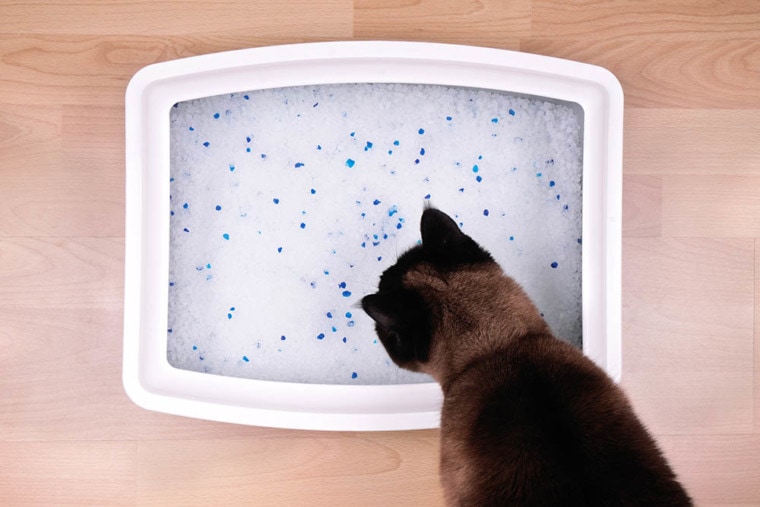
When you put a kitten into a litter box for the first time, it’s like something magical happens. Most of the time, the kitty will revel in this environment, picking up on what they’re supposed to do and how they’re supposed to cover it up immediately.
But where does the instinct come from? Is it built into every cat? What about bad bathroom habits, and how do you stop them? Cats act by inbred instincts that tell them to cover their waste. Let’s learn a little more about your cat’s natural behaviors and how to channel unwanted ones.
Why Do Cats Use Litter Boxes?
Cats have a natural desire to cover up their waste. That is one of the reasons litter is so captivating for them. They feel the natural granules on their paws, and it triggers a reaction to cover.
In the wild, cats use this coverage tactic as a way to throw off potential predators. Ancestral cats knew that they had to cover their waste to mask their scent to survive, avoiding the repercussions of being found.
Lucky for cat owners, this instinct is deeply ingrained in the cat’s consciousness. They still have an impulse to cover their waste today.
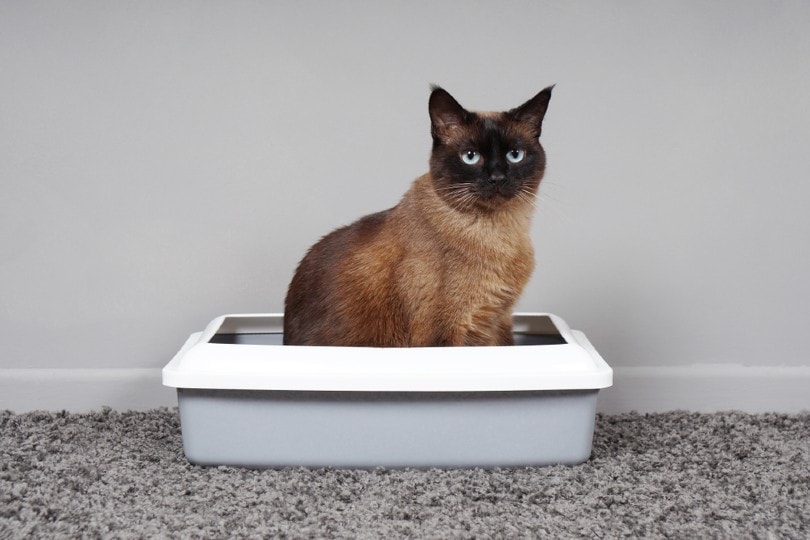
Normal Waste Elimination Behavior
After birth, it’s all up to the mother cat to stimulate each kitten in the litter to use the potty. She will clean their private parts, which sends signals to the body, helping them to eliminate.
As they age, the process starts to change a little. By 3 weeks, it’s time for the kittens to use the potty on their own. Anyone raising the kittens will begin to introduce them to a box at this time where natural instincts should do most of the hard work.
When you place a kitten in the litter box after bringing them home, they may already be quite familiar with the process. Most kittens start learning to use a litter box around 3 weeks when they’re kept indoors.
Even kitties kept outside have experienced covering their waste in the yard. So, when they feel the texture of the litter, it’s easy for them to make the distinction.
Litter Training a Challenging Kitten
There will be exceptions to easy transitions, of course. Some kittens might have trouble catching on to the concept.
Too Far Away
Often, when a kitten uses the bathroom outside of their box in the early days, it’s just because they can’t remember how to find it—or they can’t get to it in time.
Always start off by keeping your kitten in a smaller space, like a kennel or a single room. That way they can acclimate themselves to the litter box without having too much space to wander.
You can slowly increase their roaming areas until you’re certain they have the hang of things.
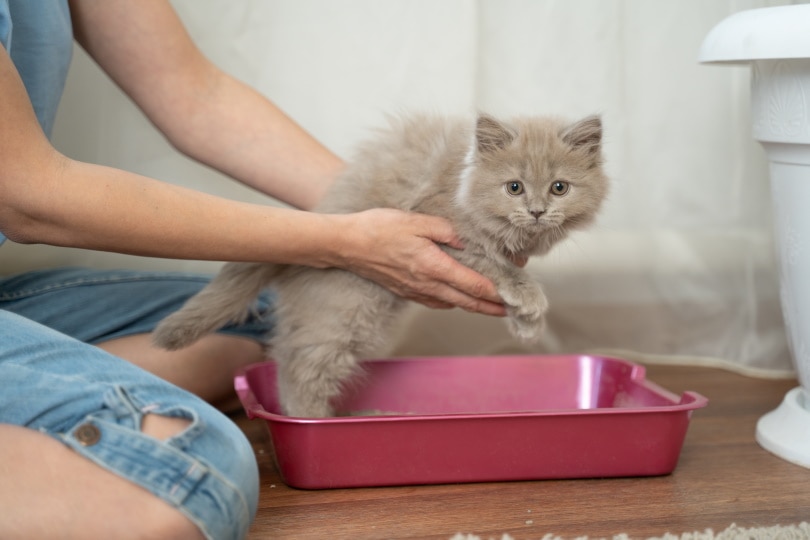
Slow Learner
Your kitty might just not catch on right away—and that’s okay. Just like a cat with too much space, keeping them in a controlled area can help this issue.
A slow learner might need you to reintroduce the litter box after naps and meals several times before they really start getting the hang of things.
Having an older cat around to learn from can be really helpful, too.
Litter Training an Adult Cat
If you rescue a cat or find a stray, you might wonder if they can make the transition to indoor living. The quick answer here is—yes! Adult cats are much easier to litter train than teaching a full-grown dog to potty outside. Cat owners just get lucky this way.
You have to be patient and understanding with a new cat. Much like a kitten, they need time to get used to the new bathroom concept of indoor living.
It’s best to keep an adult in a singular room so they can have easy access to the litter box. After a few attempts, they will certainly prefer the feeling of cat litter to standard carpets.
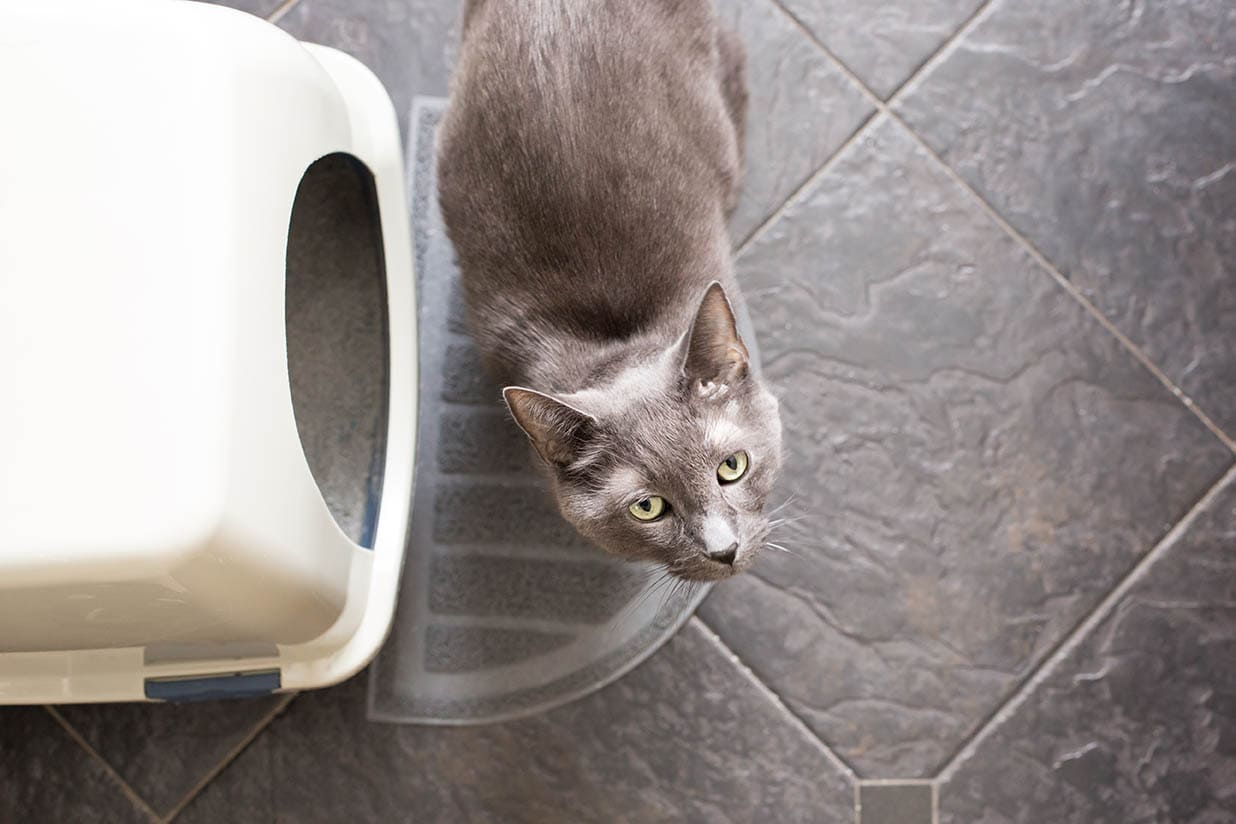
 Changes in Bathroom Habits
Changes in Bathroom Habits
If you have a cat that is litter trained but suddenly starts having accidents outside of their designated area, it can be frustrating to figure out why. It can stem from several issues, but the most common causes of these types of change involve:
A new cat around
Some kitties don’t take too kindly to another unfamiliar feline invading their space. Initially, they might be using the bathroom outside of the litter box to avoid going where another cat goes.
Territorial issues
If your cats have changing hormones, they might start getting competitive about who pees and poops where. They might mark or spitefully potty where they aren’t allowed to—so keep an eye on body language towards other cats, too.
Stress
Stress can come from so many sources, but some cats are naturally prone to anxiety. If you have a nervous kitty and something small changes, you might not notice—but they do. Try to think of anything changing if bathroom habits start to turn.
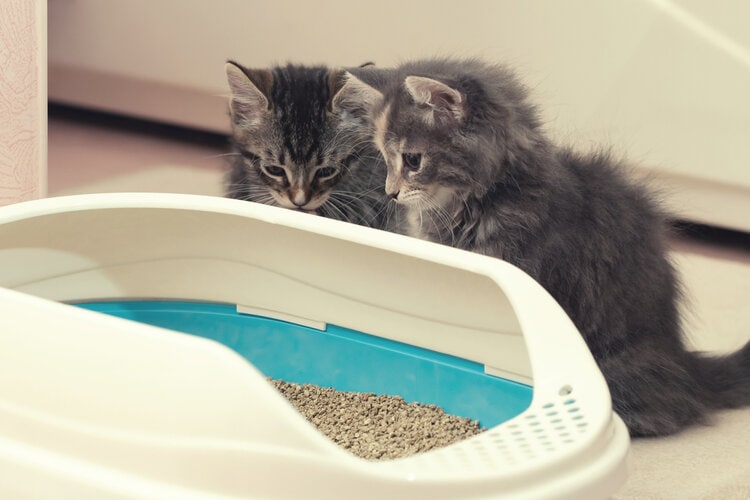
Environmental changes
Have you had any big moves recently? Or maybe you just moved the furniture or even bigger—you bought a new house. Whatever it might be could cause stress and confusion to your feline. With environmental changes, your kitty should adjust in time, so be patient.
Moving the litter box to a new area
If you put the litter box somewhere new, it might be an issue. If that’s the case, it can really throw your cat off. Maybe they can’t remember where you put the litter box, or they just don’t like the new setup. If so, they will acclimate with guidance.
New family additions
Did you bring home a new tiny screaming human or move in a significant other? If so, your cat might disapprove of the new family addition. They might act out, exhibiting peculiar behaviors they never did before.
If you look closely at changes around your cat or look for other signs and symptoms, you can surely spot the trigger. Some will just make adjustments that come with time, while others can require treatment from your vet.

Marking & Spraying Behavior
Spraying to mark territory and attract mates is a little different from peeing or pooping outside the litter box. There are hormones at play here and a whole other reason why they’re behaving this way.
Both males and females can spray once they reach sexual maturity. Usually, this begins around 6 months but can vary slightly depending on the individual cat.
You should try to get all kitties spayed or neutered before the sixth-month hump to avoid this behavior. After spraying starts, it can be super hard to change it—even after they are fixed. The goal is to stop the issue before it even begins.
Companies make deterrent sprays and other compounds to correct marking behavior, but there are no guarantees. Indoor spraying can be a real challenge for some families.
Issues with Litter Changes
Some cats are finicky when it comes to where they do their business. Even litter-trained cats can start having accidents if they don’t want to go to their box. Cats can reject litter boxes for a lot of reasons.
If your cat doesn’t like the texture of certain litters you buy, you’ll surely figure it out. They might eliminate right outside of the litter box or find a place elsewhere in the home.
If you notice this behavior started right after this change, offer another litter pan with familiar litter in it to see what if they use it instead. If so, you might have to find a litter with a similar texture to attract your cat.
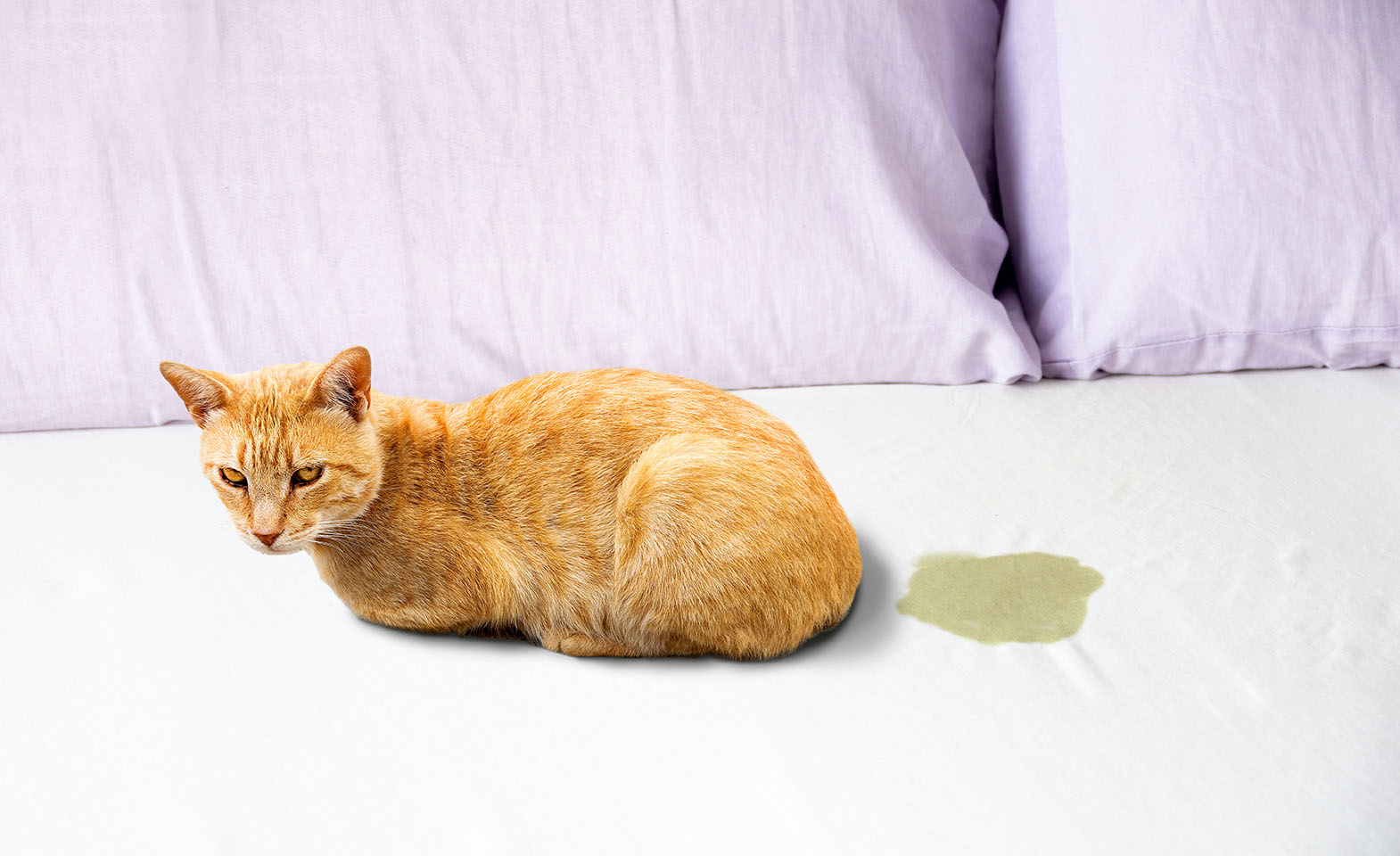
Conclusion
Cats are pretty amazing creatures. Even though this behavior diverts predators that are no longer a threat to our chubby, spoiled housecats, it works in our favor. If you are experiencing issues with your kitten or cat not using the litter box, always notice anything around that might cause the issue.
If you think these changes are health-related, make sure you make an appointment with your vet. It’s always better to be safe than sorry.
Another interesting read:
- Why Does My Cat Use the Litter Box When I Use the Toilet?
- 10 Best Litter Boxes for Multiple Cats – Reviews & Top Picks
Featured Image Credit: Axel Bueckert, Shutterstock







